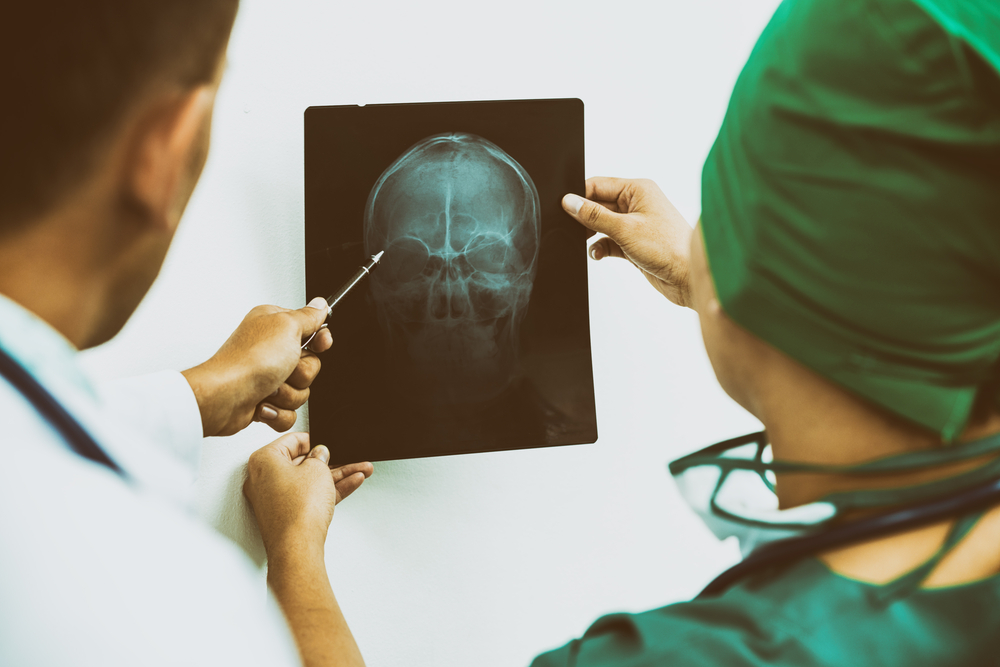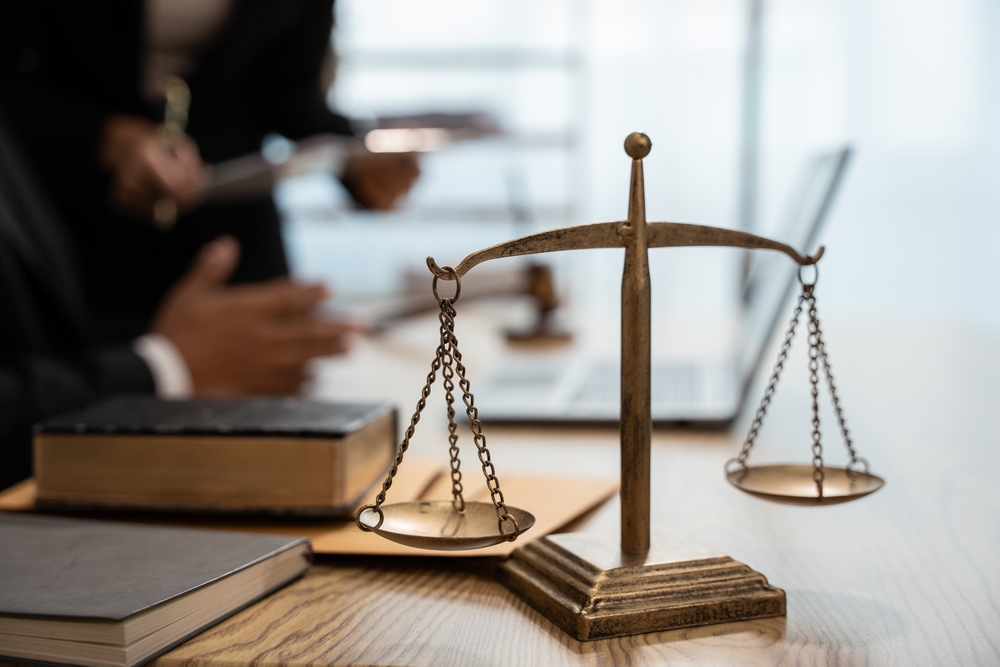- August 21, 2024

In the blink of an eye, a car accident can turn your world upside down, leaving you or a loved one with one of the most serious and potentially life-altering injuries: head trauma. Whether a seemingly minor bump or a severe blow, any impact to your head during a collision demands immediate attention and careful follow-up. The moments and days following such an injury are critical, not just for your health, but for your future well-being and financial security.
Head injuries can be silent predators, with symptoms that may not manifest immediately but can have profound, lasting effects on your life. If you or a loved one suffered head trauma in a car accident, you may be entitled to compensation. Consulting a Detroit car accident lawyer can be crucial in these situations. The steps you take afterward, with the guidance of a skilled attorney, can significantly impact your recovery and your ability to secure the support and resources you'll need moving forward.
Contact us online, and let us safeguard your rights and future.
Steps to Take After a Car Accident
Here are some essential steps to take if you've hit your head in a car accident to ensure you protect both your health and your legal rights:
- Seek Immediate Medical Attention
- Document the Accident Scene
- Report the Accident
- Follow Up with Medical Care
- Monitor Your Condition
- Rest and Recovery
- Consider Rehabilitation Services
- Understand the Potential Long-Term Effects
- Manage Your Work and Daily Life
- Protect Your Legal Rights
- Consult a Lawyer
- Gather and Organize Documentation
- Be Cautious with Insurance Companies
- Educate Yourself About Head Injuries
- Plan for the Future
- Take Care of Your Mental Health
Seek Immediate Medical Attention
The first and most crucial step after hitting your head in a car accident is to seek immediate medical attention. Even if you feel fine initially, head injuries can have delayed symptoms and potentially life-threatening complications.

- Call 911 or have someone call for you if you're unable to do so yourself.
- Don't attempt to move if you suspect a neck or spine injury.
- Allow emergency responders to assess your condition and transport you to the hospital if necessary.
- If you're able to move safely, go to the nearest emergency room or urgent care center for evaluation.
Remember, some head injuries may not show immediate symptoms but can develop into serious conditions over time. It's always better to err on the side of caution when it comes to head trauma.
Document the Accident Scene
If you can safely and without exacerbating your injuries, try documenting the accident scene. This information can be crucial for both medical treatment and potential legal claims.
- Take photos of the vehicles involved, including damage and their positions.
- Collect contact and insurance information from other drivers involved.
- Get contact information from any witnesses.
- Note the time, date, and location of the accident.
- Write down or record your recollection of the events leading up to and during the accident.
If you cannot gather this information due to your injuries, ask a trusted friend or family member to do so.
Report the Accident
Ensure that the accident is properly reported to the relevant authorities:
- File a police report if officers didn't respond to the scene.
- Notify your insurance company about the accident.
- If the accident occurred at work, report it to your employer and file a workers' compensation claim if applicable.
Proper reporting is essential for creating an official record of the incident, which can be valuable for insurance claims and potential legal action.
Follow Up with Medical Care

After receiving initial medical attention, it's crucial to follow up with appropriate medical care:
- Schedule an appointment with your primary care physician for a thorough evaluation.
- Follow all treatment recommendations and attend all follow-up appointments.
- Keep detailed records of all medical visits, treatments, and medications related to your head injury.
- Be aware of potential symptoms that may develop over time, such as:
- Persistent headaches
- Dizziness or balance problems
- Memory issues or confusion
- Changes in mood or behavior
- Sensitivity to light or noise
- Sleep disturbances
If you experience any new or worsening symptoms, seek medical attention immediately.
Monitor Your Condition
Head injuries can have subtle and evolving effects. It's important to closely monitor your condition in the days and weeks following the accident:
- Keep a journal of your symptoms, noting any changes or new developments.
- Pay attention to your cognitive function, including memory, concentration, and decision-making abilities.
- Be aware of any emotional or behavioral changes, as these can be indicators of a traumatic brain injury.
- Involve family members or close friends in monitoring your condition, as they may notice changes you don't.
Rest and Recovery
Proper rest and recovery are essential for healing from a head injury:
- Follow your doctor's recommendations for rest and activity restrictions.
- Avoid physically demanding activities or sports until cleared by your physician.
- Get plenty of sleep and avoid overexertion.
- Limit screen time and other activities that may strain your eyes or worsen symptoms.
- Gradually return to normal activities as advised by your healthcare provider.
Consider Rehabilitation Services
Depending on the severity of the head injury, you may benefit from various rehabilitation services:
- Physical therapy to address balance or coordination issues
- Occupational therapy to help with daily living activities
- Speech therapy if you're experiencing language or communication difficulties
- Cognitive therapy to address memory or concentration problems
- Psychological counseling to manage emotional or behavioral changes
Discuss these options with your healthcare provider to determine which services may benefit your recovery.
Understand the Potential Long-Term Effects
Head injuries can have long-lasting effects that may not be immediately apparent. It's important to be aware of potential long-term consequences:
- Chronic headaches or migraines
- Persistent cognitive difficulties
- Increased risk of neurodegenerative diseases
- Changes in personality or emotional regulation
- Sensitivity to future head injuries
Manage Your Work and Daily Life

Recovering from a head injury may require adjustments to your work and daily routines:
- Communicate with your employer about your condition and any necessary accommodations.
- Consider a gradual return-to-work plan if recommended by your doctor.
- Adjust your schedule to allow for adequate rest and recovery time.
- Seek help from family and friends for daily tasks if needed.
- Be patient with yourself as you navigate the recovery process.
Protect Your Legal Rights
If your head injury resulted from someone else's negligence, it's important to protect your legal rights:
- Avoid discussing fault or details of the accident with insurance adjusters or other parties.
- Don't sign any settlement agreements or waivers without legal advice.
- Be cautious about what you post on social media regarding the accident or your injuries.
Consult a Lawyer
After a car accident resulting in a head injury, consulting an experienced car accident lawyer is a crucial step in protecting your rights and ensuring you receive fair compensation. Most personal injury lawyers offer free initial consultations. Use this opportunity to discuss your case and understand your legal options.
Some of the benefits of legal representation include:
- Protection from insurance company tactics
- Accurate valuation of your claim, including future medical needs and lost earning potential
- Skilled negotiation on your behalf
- Preparation and filing of all necessary legal documents
- Representation in court if your case goes to trial
Remember, the sooner you consult a lawyer, the better they can protect your interests and preserve important evidence.
Gather and Organize Documentation
Proper documentation is crucial for both your medical care and any potential legal claims:
- Keep all medical records, including emergency room visits, doctor's appointments, and test results.
- Save receipts for all expenses related to your injury, including medications, medical equipment, and travel costs for appointments.
- Document any time missed from work due to your injury.
- Keep a record of how the injury has affected your daily life, including activities you can no longer perform or enjoy.
This documentation can be invaluable in demonstrating the impact of your injury and supporting your claim for compensation.
Be Cautious with Insurance Companies
While insurance companies may seem helpful, it's important to remember that their primary goal is to minimize payouts:
- Be wary of early settlement offers, as the full extent of your injuries may not yet be apparent.
- Don't provide recorded statements without legal advice.
- Understand that anything you say to an insurance adjuster can potentially be used to reduce your claim.
- Consider having all communication with insurance companies go through your attorney.
Educate Yourself About Head Injuries
Understanding your injury can help you be a better advocate for your own care:
- Research reputable sources about head injuries and their effects.
- Join support groups for individuals with similar injuries.
- Ask questions during medical appointments to better understand your condition and treatment options.
- Stay informed about new developments in head injury treatment and research.
Plan for the Future
While focusing on your immediate recovery is important, it's also wise to plan for the future:
- Consider the potential long-term costs of your injury, including ongoing medical care and potential loss of earning capacity.
- Discuss your prognosis with your healthcare providers to understand what to expect in the coming months and years.
- Consider how your injury might affect your future career plans or life goals.
- Explore options for long-term care or support if necessary.
Take Care of Your Mental Health
The psychological impact of a head injury can be as significant as the physical effects:
- Be aware of signs of depression, anxiety, or post-traumatic stress disorder (PTSD).
- Consider counseling or therapy to help cope with the emotional aspects of your injury.
- Practice stress-reduction techniques such as meditation or deep breathing exercises.
- Join support groups to connect with others who understand your experience.
Compensation Available in a Car Accident Case Resulting in Head Injuries
Car accident victims who suffer head injuries may be entitled to various types of compensation, including:
- Medical Expenses
- Current medical bills: This includes emergency room visits, hospital stays, doctor appointments, and diagnostic tests.
- Future medical costs: Anticipated expenses for ongoing treatment, therapy, and potential surgeries.
- Rehabilitation costs: Expenses for physical therapy, occupational therapy, and cognitive rehabilitation.
- Medication costs: Both current and future prescription medication expenses.
- Medical equipment: Costs for any necessary devices or equipment to aid in your recovery or daily life.
- Lost Wages and Income
- Current lost wages: Compensation for work missed due to your injury and recovery.
- Future lost earning capacity: If your head injury affects your ability to work in the future or limits your career prospects.
- Lost benefits: Including missed bonuses, promotions, or other work-related benefits.
- Pain and Suffering
- Physical pain: Compensation for the physical discomfort and pain resulting from your injury.
- Emotional distress: Coverage for anxiety, depression, PTSD, or other psychological impacts of the accident and injury.
- Loss of enjoyment of life: Compensation for activities or hobbies you can no longer participate in due to your injury.
- Property Damage
- Vehicle repair or replacement costs
- Personal property damaged in the accident
- Home Modifications and Life Care Expenses
- Costs for modifying your home to accommodate any disability resulting from the head injury.
- Expenses for in-home care or assistance with daily living activities if needed.
- Loss of Consortium
- Compensation for the impact on your relationship with your spouse or partner due to your injury.
- Wrongful Death Damages
- If the head injury unfortunately results in death, family members may be eligible for wrongful death damages, including funeral expenses, loss of financial support, and loss of companionship.
The specific types and amounts of compensation available will depend on the unique circumstances of your case, including the severity of your head injury, the impact on your life, and the laws of Michigan. Insurance policy limits may also affect the compensation available.
Contact a Trusted Car Accident Lawyer from Goodman Acker PC Today
Hitting your head in a car accident can be a life-changing event with far-reaching consequences. By taking prompt action, seeking appropriate medical care, and protecting your legal rights, you can give yourself the best chance at a full recovery and fair compensation for your injuries.

At Goodman Acker P.C., we help clients navigate the complex legal landscape following car accidents and head injuries. Our experienced personal injury attorneys can help you with the following:
- Understand your rights and legal options
- Investigate the circumstances of your accident
- Gather and preserve evidence to support your claim
- Negotiate with insurance companies on your behalf
- Pursue compensation for medical expenses, lost wages, pain and suffering, and other damages
- Represent you in court if necessary
If you or a loved one suffered a head injury in a car accident, don't navigate this difficult time alone. Contact Goodman Acker P.C. today at (248) 831-1507 or through our online form for a free consultation. Our team will work tirelessly to ensure you receive the medical care you need and the compensation you deserve. Remember, your focus should be on recovery—let us handle the legal complexities and fight for your rights.
Contact us online, and let us safeguard your rights and future.

